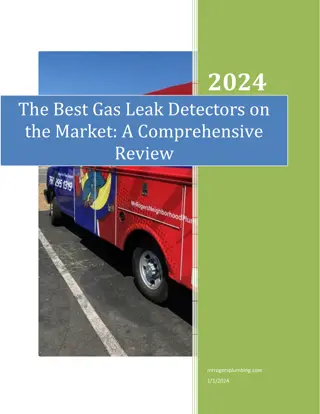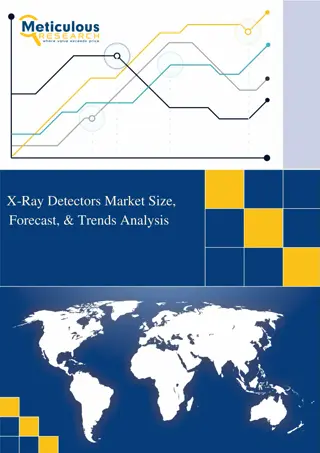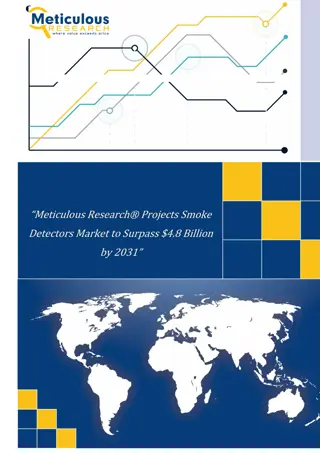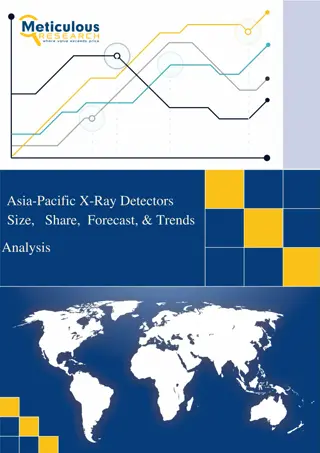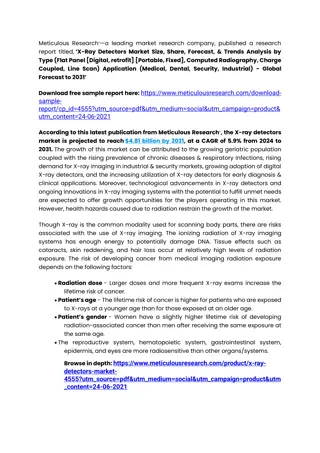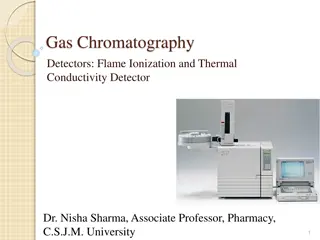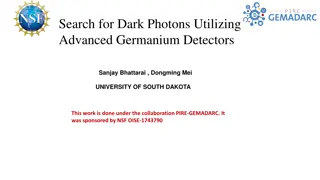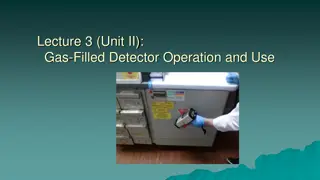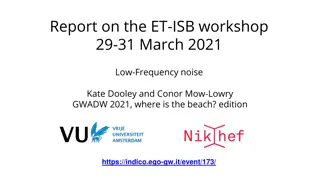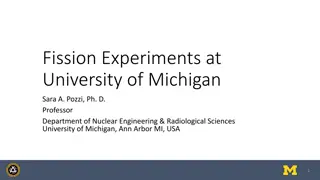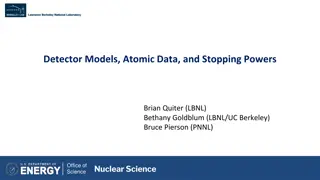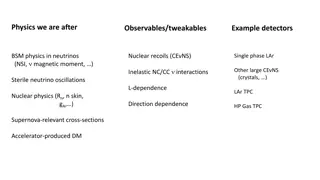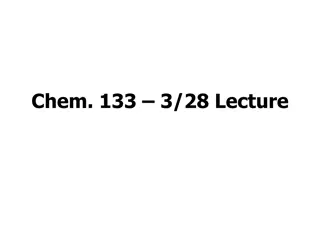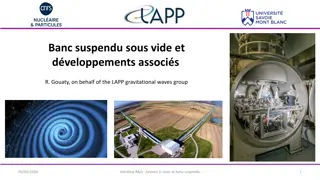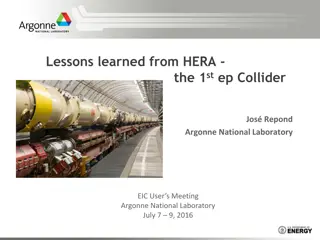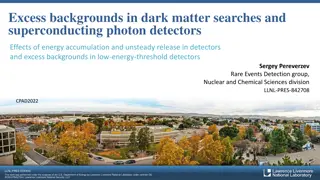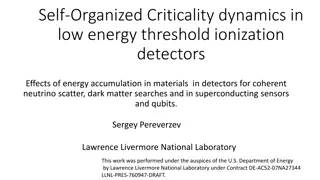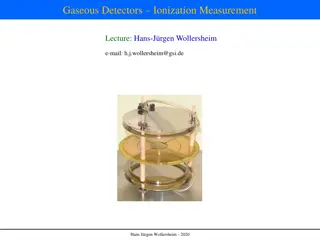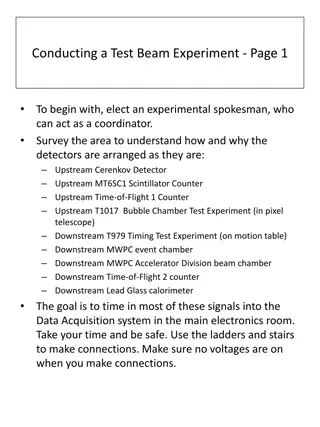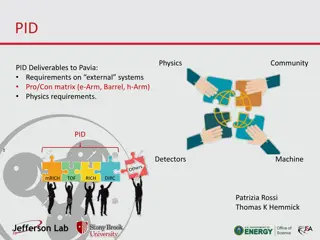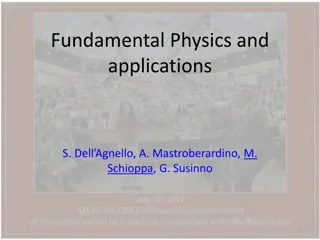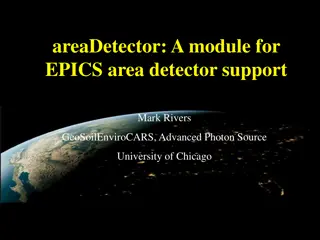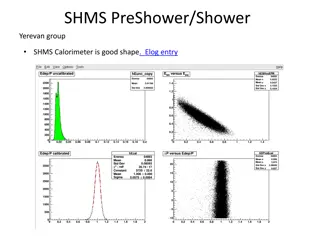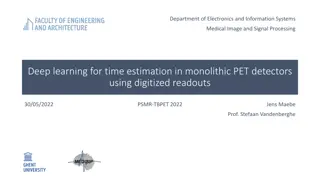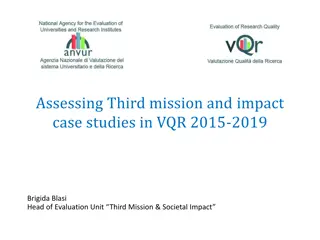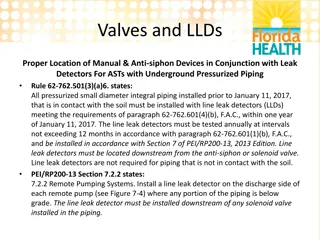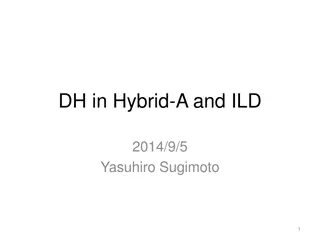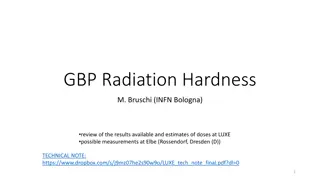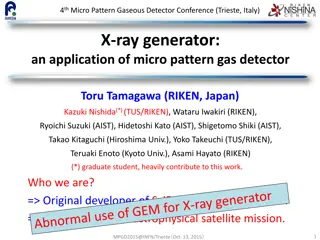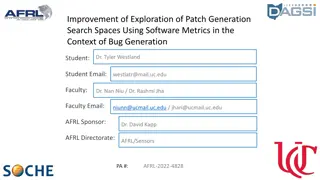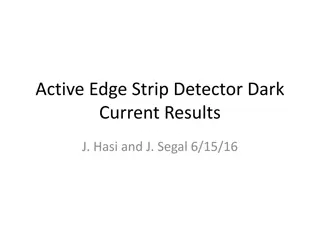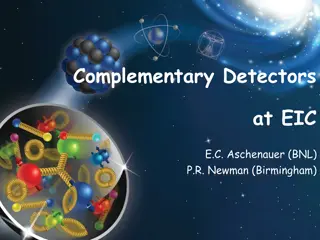X-ray Detectors Market: Type, System and Application
Meticulous Research\u00ae, a leading global market research company, published a research report titled, \u2018X-ray Detectors Market by Product Type (FPD, CSI, GADOX, CR, CCD), FOV (Large, Medium, Small), Portability (Portable, Fix), System (New, Retrofit), And Application [Medical (Mammogram, Spin
2 views • 2 slides
Innovations in Pixel Detector Technology for Photon Science
Technologies and advancements in pixel detector development for photon science applications are showcased in this content. Topics discussed include balancing gain and dynamic range in hybrid pixel detectors, performance assessments of integrating pixel detectors, and strategies for photon detection
4 views • 21 slides
The Best Gas Leak Detectors on the Market A Comprehensive Review
Electronic gas leak detectors are popular for their efficiency and user-friendliness. They operate primarily through the use of sensors that detect changes in the electrical resistance of the air. \n
2 views • 10 slides
X-Ray Detectors Market
The growth of this market can be attributed to several factors, including the growing geriatric population coupled with the rising prevalence of chronic diseases & respiratory infections, rising demand for X-ray imaging in industrial & security markets, growing adoption of digital X-ray detectors
0 views • 3 slides
Meticulous Research® Projects Smoke Detectors Market to Surpass $4.8 Billion by 2031
Explore $4.8 Billion Smoke Detectors Market: Get exclusive insights on key market trends, segments, geographical analysis, & competitive analysis!\n
1 views • 4 slides
Third-Party Contract Manufacturing Services
For companies looking for efficient manufacturing solutions, third-party manufacturers in India have a lot to offer. One of the leading third-party manufacturers in India is Unimarck Pharma. Contact us for full information about Third-Party Contract Manufacturing Services.
2 views • 4 slides
asia pacific x ray detecter
X-ray detectors are devices or systems used to capture and record X-ray images for medical, industrial, scientific, or security purposes. They are essential tools for visualizing the internal structures of objects and organisms through the use of X-ray radiation. X-ray detectors are used in a variet
1 views • 3 slides
xray detecter
X-ray detectors are devices or systems used to capture and record X-ray images for medical, industrial, scientific, or security purposes. They are essential tools for visualizing the internal structures of objects and organisms through the use of X-ray radiation. X-ray detectors are used in a variet
1 views • 2 slides
Gas Chromatography Detectors: Flame Ionization and Thermal Conductivity
Gas chromatography detectors play a crucial role in separating and analyzing compounds in the pharmaceutical field. The Flame Ionization Detector (FID) utilizes hydrogen flame to ionize compounds eluted from the column, while the Thermal Conductivity Detector (TCD) principle involves converting elec
0 views • 13 slides
Search for Dark Photons Utilizing Advanced Germanium Detectors at University of South Dakota
Research at the University of South Dakota under the collaboration PIRE-GEMADARC focuses on developing advanced germanium detectors with low energy thresholds for detecting low mass dark photons. The study aims to optimize event detection using new Ge detectors with internal charge amplification. Th
0 views • 16 slides
Gas-Filled Detector Operation and Use in Nuclear Medicine
Gas-filled detectors play a crucial role in nuclear medicine applications. This lecture delves into the operation of a dose calibrator, explaining the radionuclide buttons' functionality and how to determine the appropriate activity of various radionuclides. It also covers the use of ionization surv
0 views • 16 slides
Insights from ET-ISB Workshop on Low-Frequency Noise and GWADW 2021
The ET Instrument Science Board held a workshop focusing on addressing key challenges related to low-frequency noise in gravitational wave detectors. Experts discussed topics such as mirror temperature, dealing with low-frequency noise realities, and facility limits. The workshop highlighted the sig
0 views • 13 slides
Advanced Understanding of Low-Frequency Noise in Instrumentation
Understanding low-frequency noise in instrumentation has advanced significantly, emphasizing the need for an integrated approach to predict and mitigate such noise. Recent studies show that low-frequency noise in third-generation instruments is exceptionally better than in second-generation detector
0 views • 11 slides
Advanced Fission Experiments at University of Michigan
The University of Michigan, under the guidance of Dr. Sara A. Pozzi, conducts cutting-edge fission experiments leveraging organic scintillation detectors. These detectors offer advantages such as nanosecond-scale response times, energy proportionality, and scalability. The experiments focus on impro
0 views • 4 slides
Nuclear Data Needs for Radiation Detectors and Accelerators
Explore the essential nuclear data needs for developing and interpreting radiation detectors and accelerators. This session focuses on traditional and novel detector technologies, including transport modeling, stopping powers, light yields, and X-ray emission. Meet the experts from top institutions
0 views • 13 slides
Exploring Neutrino Physics and Beyond with Observables and Detectors
Delve into the realm of neutrino physics, nuclear recoils, and other phenomena like sterile neutrino oscillations using detectors such as BSM and single-phase LAr inelastic NC/CC interactions. From NSI to Supernova-relevant cross-sections and accelerator-produced DM, this research journey covers a w
0 views • 5 slides
Introduction to Spectroscopic Instrumentation and Monochromators
Today's lecture covers spectroscopic instrumentation with a focus on monochromators. It delves into the components and performance measures of spectrometers, including wavelength discrimination filters, light detectors, and energy dispersive detectors. The dispersion of light through prisms and grat
0 views • 17 slides
Advances in Optical Bench Technology for Gravitational Wave Detectors
This content discusses the latest advancements in optical bench technology for gravitational wave detectors, focusing on precise measurements of back-scattered light, development of new optical cavities, and testing of Sagnac interferometers. Key objectives include improving suspension controls, red
0 views • 13 slides
Insights from HERA Collider Experiments and Acronyms
Lessons learned from the HERA collider regarding its operation, detectors, experiments, and challenges faced. Acronyms like HERA, H1, ZEUS are explained, along with details on beam collisions and detectors used. Personal insights and caveats shared by a researcher who was involved in the HERA projec
0 views • 20 slides
Neutrino Detectors for NuStorm: Physics Goals and Detector Requirements
Physics goals for neutrino detectors in the NuStorm project include measuring exclusive neutrino cross sections, supporting long baseline programs, searching for sterile neutrinos, and improving measurements. Detector requirements involve reconstructing neutrino interactions, providing charge and pa
0 views • 21 slides
Dark Side of the Afterglow: Complications in Dark Matter and Rare Events Searches
Exploring the challenges in detecting dark matter and rare events due to energy accumulation, excitation clustering, and avalanche relaxation events. Discusses issues such as low-energy background, ionization load on detectors, dual-phase detectors, universal scenarios of energy accumulation, and en
0 views • 15 slides
Insights into Excess Backgrounds in Dark Matter Searches and Energy Accumulation Effects in Detectors
Explore the impact of excess backgrounds in dark matter searches, energy accumulation, and unsteady releases in detectors. Delve into the implications on low-energy-threshold detectors and the emergence of complex effects in various detector types due to energy accumulation and delayed releases.
3 views • 23 slides
Investigation of Self-Organized Criticality Dynamics in Low Energy Threshold Ionization Detectors
Exploring the effects of energy accumulation in materials in detectors for coherent neutrino scatter, dark matter searches, and superconducting sensors and qubits. Focus on condensed matter effects, responsivity, background, and a hypothesized universal condensed matter mechanism. Touches on energy
0 views • 16 slides
Insights into Gaseous Detectors for Ionization Measurement
Delve into the world of gaseous detectors for ionization measurement, as discussed by Hans-Jürgen Wollersheim. Topics include the Bethe-Bloch formula, ionization detectors, effective ionization energies, charge transport in gas, ion mobility, and electron mobility in gases. Explore concepts such as
2 views • 29 slides
Conducting a Test Beam Experiment - Step-by-Step Guide
In this step-by-step guide, you will learn how to set up and conduct a test beam experiment. The experiment involves connecting detectors such as Cerenkov Detectors, Scintillator Counters, Bubble Chambers, and more. The process includes handling signal cables, high voltage connections, and checking
1 views • 5 slides
PID Physics Community Deliverables to Pavia: Requirements and Developments
Requirements and developments of external systems and detectors (e-Arm, Barrel, h-Arm) for PID Physics Community to Pavia are detailed. The deliverables include Pro/Con matrices, physics requirements, and advancements in detectors such as mRICH, TOF, RICH, and DIRC. Various simulation results, advan
0 views • 13 slides
Wholesale Storage Load Metering of Losses in Distributed Generation Battery Facility
Example system configuration in ERCOT involving a wholesale storage load metering system to track losses in a distributed interconnected generation battery facility. The system includes electrical storage systems, generation resources, and distribution generation components. Challenges arise in dete
0 views • 8 slides
Advances in Experimental Particle Physics and Metrology Technologies
This collection of images and text highlights the essential aspects of fundamental physics experiments, particle physics detectors, and the Atlas ITk project. It also focuses on the importance of metrology for physics and satellite experiments, with a specific emphasis on laser technologies. The con
0 views • 11 slides
Understanding EPICS areaDetector Module for Advanced Photon Source at University of Chicago
This content delves into the areaDetector module for EPICS, supporting various detectors used in research settings like synchrotron beamlines. It covers the motivation, goals, architecture, data structures, and detector drivers involved, emphasizing the versatility, efficiency, and support provided
0 views • 35 slides
Essential Role of Third Sector Organizations in COVID-19 Response and Recovery
This research study by Claire Bynner and the University of Glasgow team focuses on the impact of COVID-19 on families, children, and young people, as well as the response of local third sector organizations in Scotland. The findings highlight the remarkable mobilization of the third sector during th
0 views • 7 slides
Updates on Calorimeter and Cherenkov Detectors in Yerevan Group's SHMS and HMS
Check out the latest updates on the calorimeter and Cherenkov detectors of Yerevan Group's SHMS and HMS. The SHMS detectors are in good shape, while adjustments in HV are needed for the HMS Cherenkov detectors to achieve optimal performance. Images and descriptions are provided in the Elog entries.
0 views • 6 slides
Deep Learning for Time Estimation in Monolithic PET Detectors
This study focuses on utilizing deep learning techniques for time estimation in monolithic PET detectors using digitized readouts. The proposed detector design includes a polished LYSO reflector, 6 virtual DOI layers, and an 8x8 SiPM array. Simulation studies and dataset generation for training the
0 views • 13 slides
VQR 2015-2019: Assessing Third Mission and Impact Case Studies
Evaluation of the third mission and impact case studies in VQR 2015-2019, focusing on Italian national research assessment exercise results, third mission activities, and innovative evaluation approaches utilizing case studies. The quality profiles of third mission activities at institution and depa
0 views • 17 slides
Proper Installation of Valves and Leak Detectors for Pressurized Underground Piping
According to Florida administrative code rule 62-762.501(3)(a)6., all pressurized small diameter integral piping in contact with soil must have line leak detectors installed within one year of January 11, 2017. These detectors should be downstream from the anti-siphon or solenoid valve and tested an
0 views • 4 slides
Detector Assembly and Cryogenics Requirements for ILD Project
The ILD project involves assembling detectors using pre-assembled pieces on surface and lowering them into the assembly area. The detectors are equipped with various components like muon detectors, solenoids, and calorimeters. Magnetic field measurements are carried out during the assembly process.
0 views • 11 slides
Advancements in Sapphire Detectors for Radiation Hardness Testing and High-Energy Physics Experiments
Reviewing radiation hardness testing, dose estimates, and measurements at LUXE, this content delves into the use of sapphire detectors in high-energy physics experiments. Highlighting sapphire's material properties, such as high radiation resistance, low cost, and specific characteristics, the text
0 views • 13 slides
Advancements in Triggerable X-ray Generators for Calibration in Space
The development of triggerable X-ray generators for onboard calibration devices in space is discussed, focusing on the application of micro-pattern gas detectors. The challenges and solutions for realizing triggerable X-ray generation, including the selection of electron sources and conceptual desig
0 views • 18 slides
Exploration of Patch Generation Search Spaces using Software Metrics
This research focuses on improving the exploration of patch generation search spaces by utilizing software metrics in the context of bug generation. The study investigates the threat of malicious code insertion in third-party code construction for military projects and explores the concept of Patch
0 views • 8 slides
Comparative Study of Different Strip Detectors for Dark Current Results
Explore various strip detectors including old baseline, extra-distance, and guard ring surrounding detectors through images showing pixel current behavior when biased. The study highlights the impact of guard ring presence on lowering pixel current in these detectors.
0 views • 6 slides
Complementary Detectors for High-Luminosity Experiments
The work discusses the need for high luminosity at full acceptance in accelerator experiments, outlining boundary conditions and requirements for detectors. Various images illustrate the integration of experimental equipment in the IR, highlighting the structure and components of central detectors.
0 views • 13 slides

